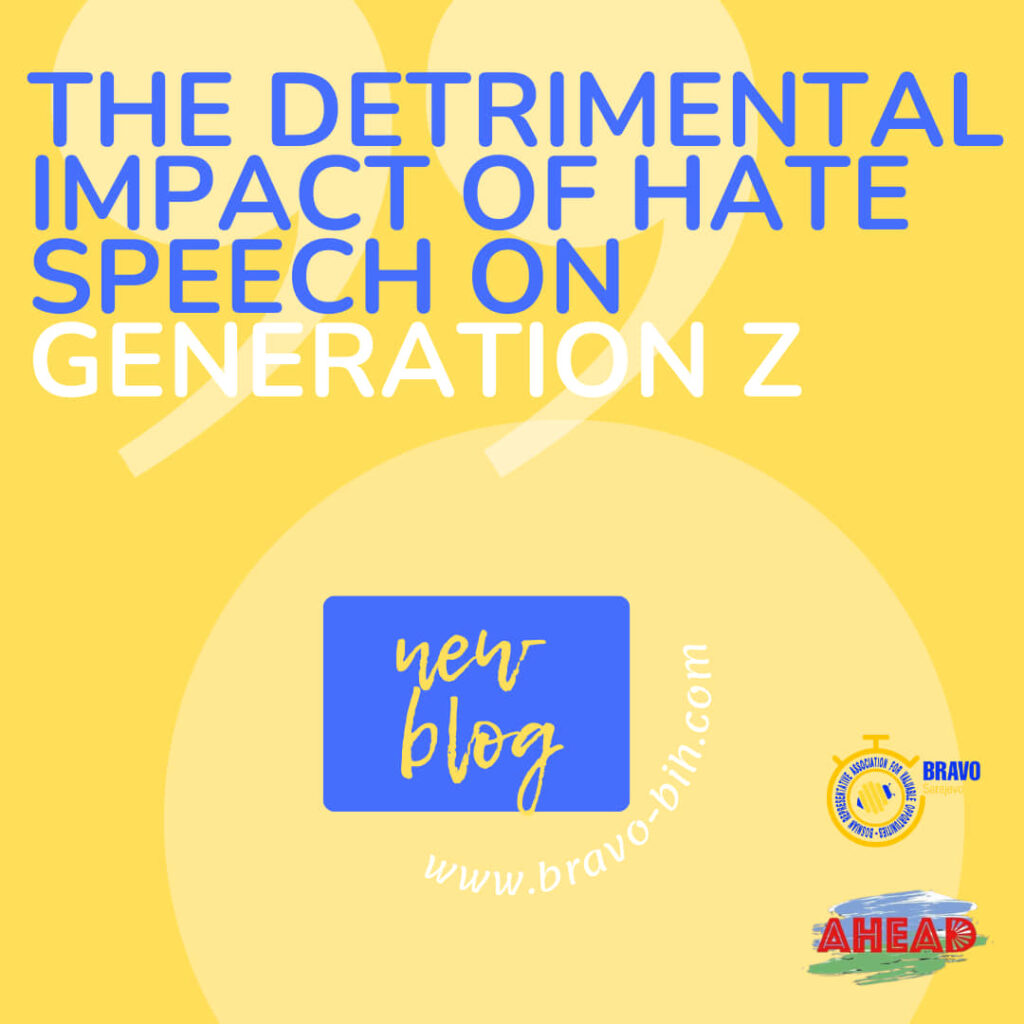
In an age of widespread connectivity and digital communication, Generation Z, the demographic cohort born between the mid-1990s and early 2010s, is experiencing the profound effects of hate speech. Hate speech, which encompasses offensive language, discriminatory remarks, and derogatory comments aimed at marginalized groups, poses a significant threat to the well-being and development of this generation. This article aims to shed light on why hate speech is ruining Generation Z, exploring the adverse consequences it has on their mental health, social interactions, and overall societal harmony.
Mental Health Implications
The pervasive nature of hate speech, particularly on social media platforms, has detrimental effects on the mental health of Generation Z. Constant exposure to online hate can contribute to increased levels of anxiety, depression, and low self-esteem. Studies have shown that cyberbullying, a form of hate speech, can lead to feelings of isolation, shame, and even suicidal ideation among young people. The consequences of hate speech on mental health cannot be underestimated, as they hinder personal growth, hinder academic performance, and impede the overall well-being of Generation Z.
Social Interactions and Empathy
Hate speech erodes the fabric of social interactions among Generation Z. By normalizing discrimination, prejudice, and intolerance, it perpetuates an environment of divisiveness and hostility. The online realm, where hate speech frequently flourishes, becomes a breeding ground for echo chambers, further entrenching divisive beliefs and amplifying intolerance. Consequently, meaningful dialogue and the exchange of diverse perspectives are compromised, hindering the development of empathy, compassion, and understanding in this generation. The lack of empathy perpetuated by hate speech threatens to divide society and hinder progress towards a more inclusive and harmonious world.
Impact on Marginalized Communities
Generation Z is known for its commitment to social justice and equality. However, hate speech poses a significant threat to these noble aspirations. Marginalized communities, including racial and ethnic minorities, as well as people with disabilities, bear the brunt of hate speech. Online platforms can become a hostile environment for these groups, leading to increased feelings of fear, isolation, and discrimination. The constant exposure to hate speech can have a lasting impact, eroding the sense of belonging and self-worth of these individuals. The pervasive nature of hate speech ultimately undermines the progress made in fighting for equality and justice, forcing marginalized communities to bear the burden of societal prejudices.
The Importance of Countering Hate Speech
In order to protect Generation Z and foster a healthier digital landscape, it is imperative to actively combat hate speech. Educational institutions, parents, and policymakers must work together to instill media literacy skills in young people, teaching them to critically analyze and challenge hateful content. Social media platforms have a responsibility to enforce stronger regulations and swiftly respond to reports of hate speech, thereby fostering a safer online environment. Additionally, fostering inclusive spaces and promoting respectful dialogue can encourage empathy and understanding among individuals from diverse backgrounds.
Where "AHEAD" steps in:
The Erasmus+ project “AHEAD” aims to combat hate speech and promote tolerance, diversity, and inclusivity among young people. Hate speech refers to any form of expression that discriminates, stigmatizes, or incites violence or hatred against individuals or groups based on attributes such as race, religion, ethnicity, nationality, gender, or disability.
The “AHEAD” project employs various strategies and activities to address hate speech effectively. Here are some ways in which it helps:
Awareness and Education: The project focuses on raising awareness about hate speech, its consequences, and its impact on individuals and society. It provides educational resources and materials to inform young people about the importance of respectful dialogue and the dangers of hate speech.
Capacity Building: “AHEAD” offers training sessions, workshops, and seminars for young people, educators, and youth workers. These activities aim to enhance their understanding of hate speech, develop critical thinking skills, and equip them with tools to challenge and respond to hate speech effectively.
Digital Literacy and Online Safety: Given the prevalence of hate speech in online platforms, the project emphasizes digital literacy and online safety. It educates young people on responsible internet use, online etiquette, and the identification and reporting of hate speech online.
Peer-to-Peer Dialogue: “AHEAD” encourages dialogue and cooperation among young people from diverse backgrounds. By facilitating intercultural exchanges, it fosters understanding, empathy, and appreciation for different perspectives. Through peer-to-peer interactions, the project promotes dialogue as an alternative to hate speech.
Creative Expression and Media Literacy: The project harnesses the power of creative expression, such as art, music, theater, and media, to engage young people in anti-hate speech initiatives. It encourages participants to express their thoughts, ideas, and experiences through creative mediums, fostering empathy and promoting positive messages.
Advocacy and Policy Development: “AHEAD” works towards influencing policy at local, national, and international levels to combat hate speech effectively. It collaborates with relevant stakeholders, including government bodies, NGOs, and youth organizations, to advocate for stronger legal frameworks and policies against hate speech.
International Cooperation: The project promotes international cooperation, enabling young people to connect with peers from different countries and cultures. By sharing experiences and perspectives, participants gain a broader understanding of the impact of hate speech globally and develop a sense of global citizenship.
Through these efforts, the project “AHEAD” contributes to building inclusive and tolerant societies, empowering young people to recognize and combat hate speech, and fostering respect, diversity, and equality.
